#punk net
Explore tagged Tumblr posts
Text
PUNK NET - GEN Z ENTDECKT SUBKULTUR
Diesmal: Spotify Wrapped und die Unendlichkeit der Genres
Am 29. November war es wieder soweit – „Spotify Wrapped“ hatte all seinen User:innen erneut einen musikalischen Rückblick auf das vergangene Jahr gegeben. Auf Instagram und anderen Social-Media-Plattformen kam man um den Hype gar nicht herum. Dabei besonders auffällig: Spotifys Genre-Burger, der seinen User:innen Aufschluss über ihr Hörverhalten bot und außerdem ein paar neue Subgenres einführte.
0 notes
Text
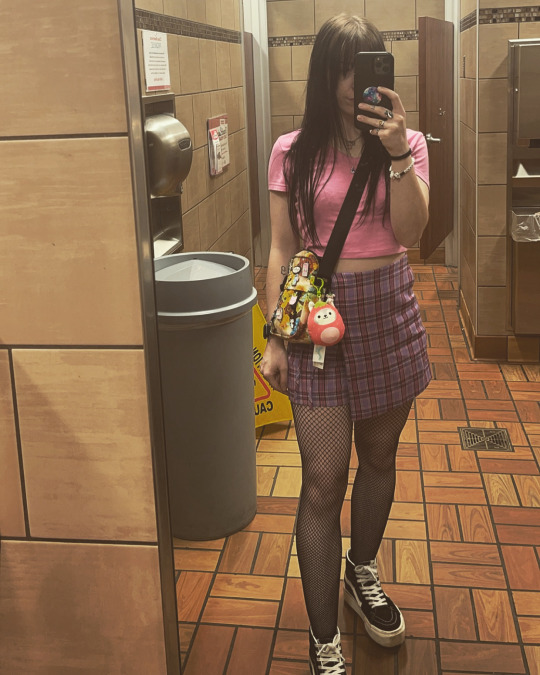
🎀🔪🍓⛓️
#me#every-thing-is-copacetic#gas station selfie#alternative#alternative girl#alt girl#fish nets#girls with piercings#e girls are ruining my life#e girl#kawaii girl#vans#pop punk girl#hot demon b!tches near u!!!#demon girl
488 notes
·
View notes
Text


Today’s good mood is sponsored by heavy metal 🤘
#goth#grunge#heavy metal#good mood#tattoos#concert outfit#outfit#fish net#babe#tatted girls#grunge aesthetic#millennials#memories#personal#selfie#me#flora#healing#love yourself#tumblr girls#punk rock#alt girl#alt aesthetic#women#witchy#mature beauty#ootd#festival#legs#goth fairy
61 notes
·
View notes
Text

It's been a while since I've shown my face - So here's me exhausted bc I'm always busy & stressed 🥹
Hope everyone is doing okay 🫶🏻
#me#tattoos#love#cute#girl#im exhausted#inbox#personal#my post#sexy#fun#hello kitty#cinnamoroll#sanrio#talk to me#friends#instagram#fish net#selfie#selflove#pop punk
26 notes
·
View notes
Text

Italian company converts discarded fishing nets into chairs, car mats and Prada bags
Since 2009, Giulio Bonazzi, the son of a small textile producer in northern Italy, has been working on a solution: an efficient recycling process for nylon. As CEO and chairman of a company called Aquafil, Bonazzi is turning the fibers from fishing nets – and old carpets – into new threads for car mats, Adidas bikinis, environmentally friendly carpets and Prada bags.
For Bonazzi, shifting to recycled nylon was a question of survival for the family business. His parents founded a textile company in 1959 in a garage in Verona, Italy. Fifteen years later, they started Aquafil to produce nylon for making raincoats, an enterprise that led to factories on three continents. But before the turn of the century, cheap products from Asia flooded the market and destroyed Europe’s textile production. When Bonazzi had finished his business studies and prepared to take over the family company, he wondered how he could produce nylon, which is usually produced from petrochemicals, in a way that was both successful and ecologically sustainable.
The question led him on an intellectual journey as he read influential books by activists such as world-renowned marine biologist Sylvia Earle and got to know Michael Braungart, who helped develop the Cradle-to-Cradle ethos of a circular economy. But the challenges of applying these ideologies to his family business were steep. Although fishing nets have become a mainstay of environmental fashion ads—and giants like Dupont and BASF have made breakthroughs in recycling nylon—no one had been able to scale up these efforts.
For ten years, Bonazzi tinkered with ideas for a proprietary recycling process. “It’s incredibly difficult because these products are not made to be recycled,” Bonazzi says. One complication is the variety of materials used in older carpets. “They are made to be beautiful, to last, to be useful. We vastly underestimated the difficulty when we started.”
Soon it became clear to Bonazzi that he needed to change the entire production process. He found a way to disintegrate old fibers with heat and pull new strings from the discarded fishing nets and carpets. In 2022, his company Aquafil produced more than 45,000 tons of Econyl, which is 100% recycled nylon, from discarded waste.
More than half of Aquafil’s recyclate is from used goods. According to the company, the recycling saves 90 percent of the CO2 emissions compared to the production of conventional nylon. That amounts to saving 57,100 tons of CO2 equivalents for every 10,000 tons of Econyl produced.
Bonazzi collects fishing nets from all over the world, including Norway and Chile—which have the world’s largest salmon productions—in addition to the Mediterranean, Turkey, India, Japan, Thailand, the Philippines, Pakistan, and New Zealand. He counts the government leadership of Seychelles as his most recent client; the island has prohibited ships from throwing away their fishing nets, creating the demand for a reliable recycler. With nearly 3,000 employees, Aquafil operates almost 40 collection and production sites in a dozen countries, including four collection sites for old carpets in the U.S., located in California and Arizona.
#solarpunk#solarpunk business#solarpunk business models#solar punk#reculture#fishing nets#materials innovation#circular#waste#italy
25 notes
·
View notes
Text
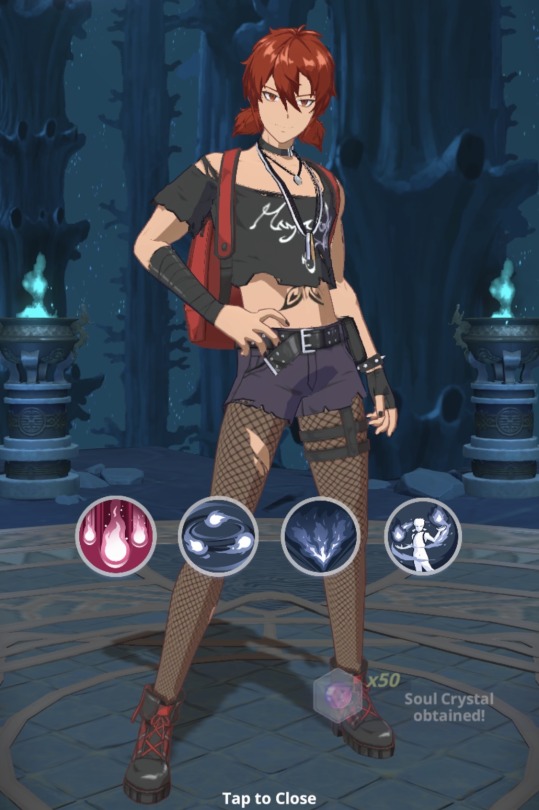
WHAT THE FUCK THEY GOT QUOETRO WEARING?!
#bro woke up and decided to dress like a slutty 2010’s punk goth girl#I think this confirms he was bottoming for Chang#love the fish nets#the only thing missing is the high heeled boots#tower of god#tog
61 notes
·
View notes
Text

Marvelous Mermay: Sea Spider
Okay people, let's go through this one last time.
My name is Gwen Stacey. I was bit by a radioactive water spider. And for the last two years, I've been the one and only spider-siren. You know the rest. I joined a band on the boardwalk. I saved my dad from pirates. I...couldn't save my best friend Peter. So I save everyone else.
#spider gwen#gOkay people#let's go through this one last time.#gwen stacy#spiderman#into the spider verse#spiderverse#mermaid#mermay 2024#mermay#blonde#blond#punk#pink#black and white#starfish#net#pearls#sony#marvel#marvelous mermay#lizzy chrome
10 notes
·
View notes
Text
While the discussion surrounding marine plastic pollution has largely focused on land-based sources, such as households and industry, a major and often overlooked contributor to ocean plastic waste is marine capture fisheries. Marine fisheries contribute to plastic pollution primarily through the abandoned, lost, or discarded fishing gear (ALDFG), such as nets, lines, ropes, and traps used to catch 2-3 trillion fish and other aquatic animals each year. Commercial industrial fishing is the primary source of ALDFG in the oceans.
‘Ghost gear’ can result from fishing gear getting entangled on reefs, rocks, and bottom obstructions, conflicts with vessels or other fishing gear, and bad weather. It may also be lost due to extended soak times (the time that equipment is submerged during fishing), fishing in deep habitats, or deploying excessive gear that cannot be hauled in regularly. If gear touches the seafloor or is not actively managed by fishermen, the likelihood of loss increases. Additionally, intentional discarding, including from illegal, unregulated and unreported (IUU) fishing, is also believed to contribute significantly to ghost gear in the sea, particularly in the areas beyond national jurisdiction. Vessels conducting IUU fishing often operate in adverse conditions, such as at night or without access to safe harbors during inclement weather, and frequently dispose of their gear to avoid detection, destroy evidence, and gain port access.
Overall, it is estimated that 5.7% of fishing nets, 8.6% of traps and pots, and 29% of fishing lines used globally are lost, abandoned, or otherwise discarded into the environment. All this ghost gear and other fisheries-related operations make up at least 10% of total ocean plastics. Rubbish associated with other marine operations adds at least an additional 10% to global marine litter. For plastics larger than 20 centimeters in size floating on the ocean’s surface, fishing gear accounts for as much as 70% (by weight).
7 notes
·
View notes
Text
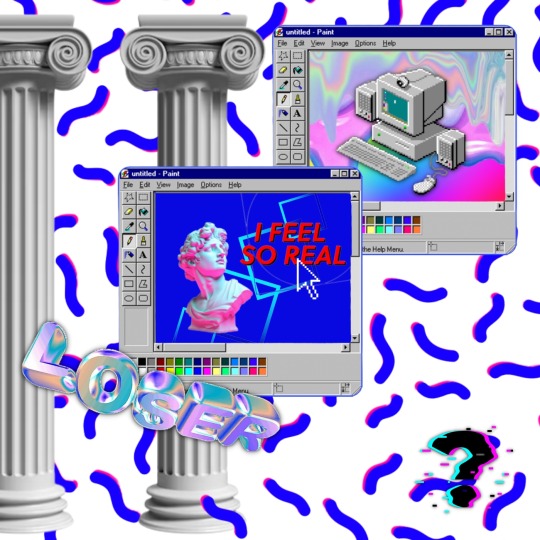


A E S T H E T I C S
by Borby Norton
#art#digital art#digital collage#borby norton#vaporwave#net art#arte#digital artist#aesthetic#collage aesthetic#web punk#web art#webdesign#graphic design#roman statue#windows 95#collage art
40 notes
·
View notes
Text
Thanks @combthecombel for this amazing commission of my fursona (gender swapped)
I really love how the purples contrast with the original designs reds. And the clothing design rocks!
Fishnets for the win!

#fursona#furry#furry art#commission#gender swap#gender fluid#genderfluid#genderswap#art#fish net#punk rock#punk#furry pride
19 notes
·
View notes
Text
Retro-colour #2

12 notes
·
View notes
Text
PUNK NET - GEN Z ENTDECKT SUBKULTUR
Diesmal: Corporate Goth - Wie Subkultur kapitalismuskonform wird
In einer Gesellschaft, die voll und ganz auf Kapitalismus ausgerichtet ist, ist es schwer, sich diesem System zu entziehen – egal, welcher Subkultur man angehört und ob man am Ende als „Sellout“ betitelt wird. Und so wie es auf TikTok für alles eine Nische gibt, so gibt es auch einen Hype um „Corporate Goth“ – Goth, der zugleich gesellschaftskonform ist.
0 notes
Text
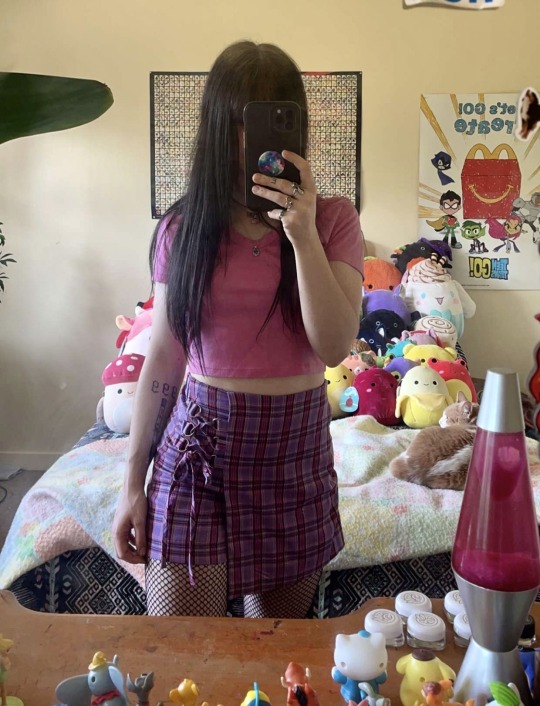
✧༺♡༻✧
#me#every-thing-is-copacetic#alternative girl#alt girl#alt model#girls with piercings#e girl aesthetic#e girls are ruining my life#pop punk girl#pop punk#alternative#e girl#kawaii girl#thicc alt girl#fish nets#emo girl
149 notes
·
View notes
Text
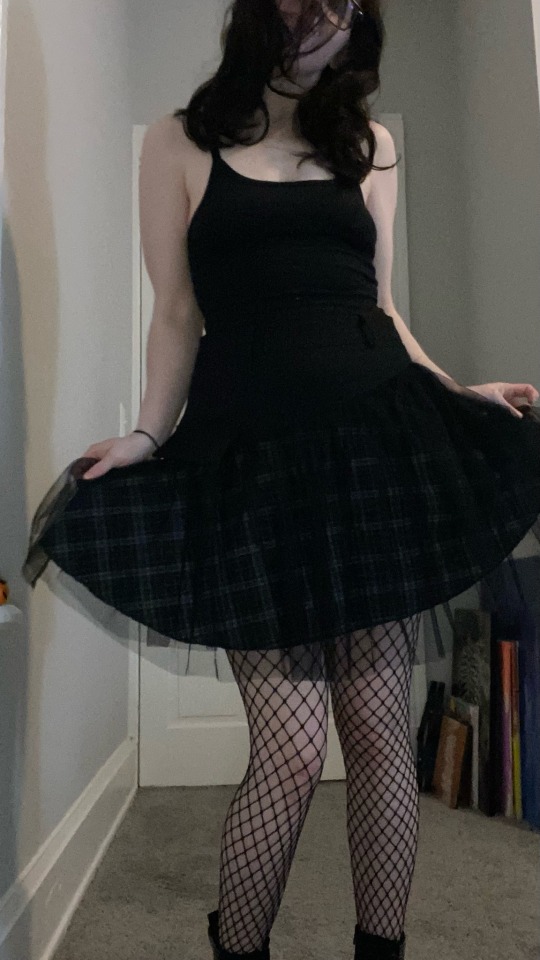
New fit who dis
#katelyn jean willis photo#hipster post#random#hipster#me#love#selfie#wow#dog#this is me#grungy style#punk aesthetic#pop punk#punk#fish nets#girls who smoke weed#cute girl#bad girl
62 notes
·
View notes
Text
yall I'm so tired
I keep getting absolutely dogged on from saying LGBTQ people are yknow people but taxidermy.net is mostly extremely conservative Christians who are very hypocritical (calling queer folk perverts while spamming the most popular threads ON A TAXIDERMY SITE with half naked women young enough to be their daughters, etc). They are so immature and literally cannot hold peaceful conversations, I'm one of the youngest people there but feel like the adult.
Just go to the website home page and look at "recent activity " and that alone will tell you.
youtube
#queer punk#Taxidermy#vulture culture#Taxidermy. Net#Taxidermist#Punk#Goth#Brohowarethesepeoplereal#homophobia tw#transphobia tw#Youtube
2 notes
·
View notes
Text

that awkward moment when you run out of hairspray mid spikes and look like a bug…
#aqua net it is#please pray for my hair#it’s gonna be all gone#liberty spikes#can’t have punk without politics#cripple punk#riot grrrl
2 notes
·
View notes